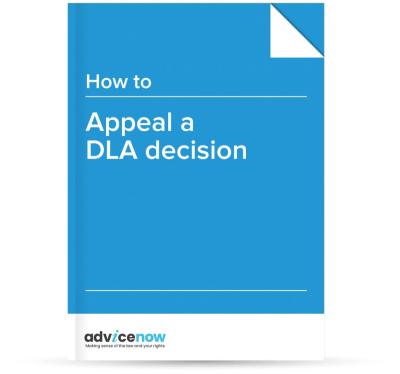Since Covid, more and more hearings have been by video and many people like them better. All of the advice on this page, except about actually travelling to the hearing, applies equally to video hearings.
There are a lot of things for you to do over the next few months. It is important to start preparing as soon as you can. Some things can take a long time.
If you have not already tried to get help and advice do so now (See How to find an adviser and How to decide what to do). Some advisers may be able to help do some of this preparation for you. If you are lucky enough to find someone who can help with the preparation, make sure you are clear which things your adviser is going to do for you, and which you need to do yourself.
Manage your appeal
If you need help to access Manage your appeal, We Are Group will help.
They can help with access to a device, or data, or provide guidance and reassurance on how to use the online service.
If you would like their help
They will respond within 2 working days.
It is a good idea to sign up to the Manage your appeal service. This service enables you to keep track of how your appeal is progressing, and you can use it to upload evidence (including audio and video evidence if you want to). It will send you texts or emails to let you know that the DWP have responded to your appeal, to confirm evidence has been received, and when your hearing date has been scheduled.
If you asked for an appeal online and gave them your email address, you will have received an email with a link to help you sign up. If you did not, you can sign up by calling 0300 123 1142 Monday to Friday, 8:30am to 5:00pm or by emailing contactsscs@justice.gov.uk. If you ask by email, you will need to include your National Insurance number, date of birth and postal address.
Getting help
Support groups
Online and other support groups can sometimes be very helpful. There may be other people who have had the same problems getting DLA for their children, who can give you emotional or practical help.
If you are not getting any professional help to prepare for the hearing, you might want to ask somebody else to help you. You may not need any help, but it might stop it from feeling too stressful. This is particularly useful if you are not very good with paperwork or deadlines. If you do think it might be useful, think about who you could ask - do you have a family member, friend, or someone who helps you who is good with paperwork and organising things?
The papers from the DWP
Look at the big pack of papers that you were sent by the DWP explaining why they made the decision they did. Many people get very confused by the inclusion of test cases at the beginning. Don’t let them put you off. If you don’t have time to become an expert on all the legal ins and outs of DLA decisions, ignore these.
The most important parts are the bits about your child. Read through it and look for anything you don't agree with.
If there is a report from your child’s school, does it give a fair picture of your child? School staff tend to be wonderfully positive about children’s abilities and progress and sometimes the DWP fail to understand the context (for example, that your child is making progress but that this is because they receive one-to-one help or are in a specialist school). School staff have usually been accurate but the limited nature of the form often leads to the DWP giving the wrong award.
Make a note of all the things that are wrong. If you can, say why they are wrong. You can include this in your statement to the tribunal. Also think about how you could get further evidence (from the school for example) that would give a fairer picture.
Check that everything you want the tribunal to read is in the papers. If anything is missing, send in a copy before the hearing. Don’t assume that the appeal panel will have access to evidence used in previous claims. If it isn’t included in these papers from the DWP, the appeal panel won’t see it unless you send it in.
Getting evidence
Before you ask anybody for evidence – read this!
You are appealing the decision the DWP made on a particular date (on the top of the letter). You need to prove how your child’s condition was at that time, not how it is now. Write the date of the decision you are appealing in the box on p x, before you ask anybody for evidence. Then show them Guide to writing useful evidence for Disability Living Allowance appeals.
For most people, the thing that is of most help is written evidence from their child’s paediatrician, support staff, or school staff. If your child sees a pediatrician, doctor at the hospital, psychologist, physiotherapist, an occupational or speech and language therapist, other healthcare professional, or has a social worker, evidence from them will often be very useful too. If your GP knows your child well, evidence from them is likely to be very helpful too.
The best evidence will come from people who know your child well and who understand their situation. If your child’s paediatrician or GP does not know them well, you should still ask them for evidence, but try to get evidence from other professionals who know them better. This could be another doctor, or other healthcare professional, or somebody who helps your child at school.
The most useful evidence will explain how your child’s illness or disability affects them, and the help they need. This is quite unusual, so your doctor or therapist may not understand that. Look at Guide to writing useful evidence for Disability Living Allowance appeals. This is a guide for your child’s doctors, therapists, school staff, or anybody else writing evidence for them. When you ask them for evidence to support the appeal, show them this page. It will help them to write evidence that will be really helpful to you.
Paying for medical evidence
GP's and other medical professionals are allowed to charge for evidence.
If your doctor suggests that he or she will charge you, tell them that you only need a brief note from them, and that it could be hand-written if this is quicker. Reassure them that it will only take the time of an appointment. Show them Guide to writing useful evidence for Disability Living Allowance appeals - so that they are sure of what you need from them.
If they insist on charging you, ask them instead for the last two years of your child’s medical records. They will give you this for free and it may contain some useful evidence.
Evidence you already have
Think also about what evidence you already have. Do you have reports of physiotherapy, occupational health, or psychological assessments? Do you have copies of letters that the different doctors and therapists have sent to each other? Does your child have an Education, Health and Care Plan (EHCP - this is the new name for a ‘Statement’)? Did you have a needs assessment from the local council? They are likely to be very helpful.
Evidence from somebody that helps your child regularly
If there is somebody who helps your child a lot (this might be someone who helps them at school, a support worker, or paid carer), they may be able to write some very useful evidence too. Ask them to write a letter to the tribunal panel explaining what help they give your child and how often. Show them the guidance on Guide to writing useful evidence for Disability Living Allowance appeals - it may help them to remember everything.
If they would prefer, they can keep a diary of the help they give instead.
Diary
You should think about keeping a diary of the extra help you give your child each day. It will help the tribunal panel to get a proper understanding of the situation. It is particularly helpful if your child’s condition isn't the same every day. Keep a diary for a month if you can (but a shorter time will also be helpful). It can be very brief. For example - 'Monday - Shaking very bad today. She needed help to fasten her clothes, and get downstairs. Couldn’t walk to school so had to take her in car. Needed soothing and physical help to get to car.’
If you are appealing a decision which relates to your child’s ability to walk it is a good idea to record how far they are able to walk without severe discomfort, and how long it takes them. The tribunal will often ask quite specific questions about how far they are able to walk.
Write a statement
If you (or someone who could help you) are good with writing, you should think about writing a statement. These can be very useful as they set out all the points you want to make, which means that you don't have to remember everything to say on the day. They also give the panel time to think about what you’ve said and why your child should be getting a higher rate, before they meet you.
For more advice on how to write a statement and what to put in it, see How to write a statement for DLA. You can also read Andrea’s statement about Alfie and see what she put in hers.
What to do with the evidence
Read all the evidence through - does it support your case? If it doesn't, you don't have to send it to the panel (but if they ask if you had any evidence you didn't send them, you have to tell the truth). If you don't think the evidence is useful it may be worth going back to the person who wrote it and discussing it with them. Is there anything they can add?
If you've got useful evidence, upload a photo of it using the Manage your appeal service or photocopy it and send it into the HM Courts and Tribunal Service before your hearing. Send it as soon as you can as this maximises the chance of the DWP changing the decision in your favour which may mean you don’t have to wait for the hearing.
Work out how you will attend the hearing
If it is a video hearing, check you have what you need for it to go smoothly. HMCTS have made a helpful video.
If your hearing is in person, the letter you receive about the hearing will usually give you details of public transport links and parking. At some venues, you can book an accessible parking spot if you phone them in advance. If you need a taxi, ask them to book one for you and check that they will pay for it. This will usually be easier than arranging one yourself.
Work out how you will get there and leave yourself plenty of time. You won’t want the stress of worrying about being late.
Arrange childcare
Organise childcare for the time of the hearing.
If you are going to a face-to-face hearing, don’t take your children with you. If you will be attending a video hearing from your home, ensure the child is somewhere else and cannot hear what is being said. You need to all be able to discuss what help the child needs frankly.
Be aware that the hearing might be quite delayed so try to organise childcare for longer than you might need. If it will cost you, get a note from the carer/childminder confirming their rate – you will be able to reclaim expenses up to the national minimum wage.
Claiming expenses
If you are going to a face-to-face hearing, you can claim travel expenses for the day of the hearing if you use public transport or travel by car. You can also claim for a meal if you are away for more than five hours. If you have to take time off work, you may also be able to claim expenses for loss of earnings. And if you have had to pay a carer or childminder you can claim expenses up to the National Minimum Wage for the time you have been away.
Before you go to your hearing, check what the current rules on expenses are on GOV.UK.
The clerk will help you fill in a claim form. Make sure you take receipts for your travel and lunch. If you have lost earnings, make sure you have a letter from your employer confirming this.
Contact the tribunal before the hearing if you need help.
Make notes of all the things you want to say on the day
This is really useful and also stops the hearing or the preparation for it from getting too stressful. Every time you think of something they got wrong or you don’t think they properly understood, make a quick note of it. Remember to take these with you to the hearing so that you can tick them off as you say them. This might be particularly useful if you haven’t written a statement.


 I had to appeal my daughter’s DLA decision after it got put down to only the low rate of care. Suzy has a visual impairment and learning difficulties and needs help day and night.
I had to appeal my daughter’s DLA decision after it got put down to only the low rate of care. Suzy has a visual impairment and learning difficulties and needs help day and night.  If someone has asked you to attend the hearing to give them support, there are several things that you could do that would be very useful.
If someone has asked you to attend the hearing to give them support, there are several things that you could do that would be very useful. This guide was written and produced by Advicenow. Thanks to the Ministry of Justice for funding this update.
This guide was written and produced by Advicenow. Thanks to the Ministry of Justice for funding this update.